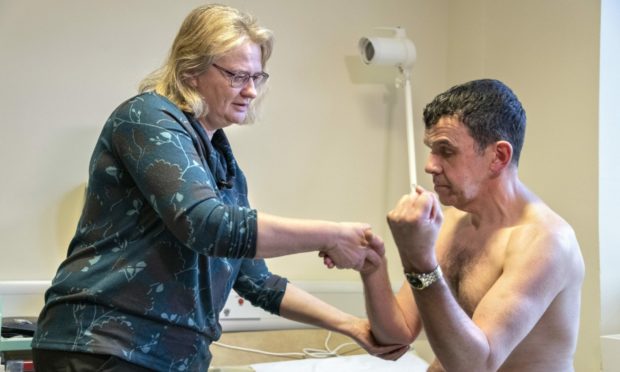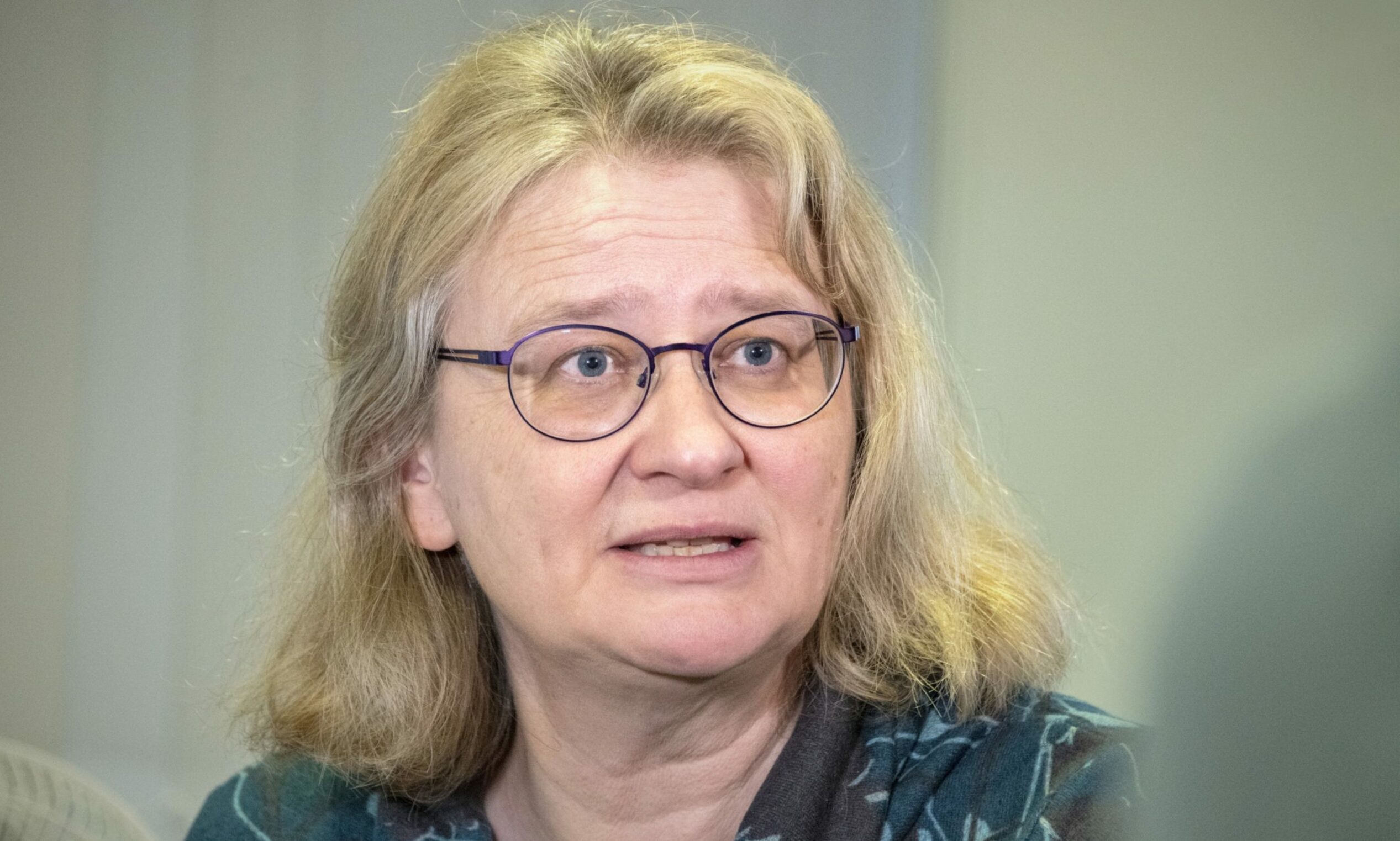The number of people in northern Scotland diagnosed with incurable Huntington’s disease (HD) has soared almost 50%, with the area now a global hotspot.
Research by Aberdeen University has found it is five times more common in the region than the estimated worldwide average.
It is currently at the centre of a “truly ground-breaking” drug trial which could slow the effects of the disease.
The hereditary condition gradually stops parts of the brain from working properly, with most people eventually requiring 24-hour nursing care.
Part of the increase in cases has been linked to a rise in testing, and the new figures have prompted calls for more investment in HD services.
What is Huntington’s disease?
The Huntington’s gene was discovered in 1993, and there is a 50% chance of it being passed from parent to child.
Around 8,500 people in the UK are thought to suffer from the disease it causes, with patients typically diagnosed in their 30s or 40s.
Generally, people die 10 to 20 years after first experiencing symptoms, which include difficulty moving, mood swings and problems with swallowing, speaking and breathing.
‘Stark’ rise in numbers
New Aberdeen University research, published in the Journal of Neurology, has revealed a 46% increase in the number of NHS Grampian patients who have the faulty gene and noticeable symptoms.
For the region as a whole, it estimates 14.6 people per 100,000 have an HD diagnosis – up from 9.94 in 1984.
It says numbers are higher in the Highlands, but lower in the Western Isles.
Across Europe, North America and Australia the rate sits at 5.7, with an estimated global prevalence of 2.71.
The figures have been described as “stark” by the Scottish Huntington’s Association, which says specialist services for the condition are an “absolute necessity”.
What has caused the increase?
The university says, over the last four years, the number of people without symptoms getting tested for the Huntington’s gene has risen 23%.
Its study team, led by Zosia Miedzybrodzka, believes the high rates are due to a number of factors.
These include “underlying genetic susceptibility” in ancestors, an increased awareness of the condition and testing, and the fact the region has one of the oldest specialist HD clinics in the world.
Prof Miedzybrodzka, who is also the consultant in charge of NHS Grampian’s north of Scotland Huntington’s clinics, warned the rise could have a severe impact on health board budgets.
She said: “The emergence of the genetic test is likely to have contributed to the increase in those diagnosed.
“Even in a country the size of Scotland, there is quite a variation in prevalence between different health board regions.
“This difference could have major drug cost and service delivery implications, especially if expensive, complexly-administered therapies prove successful.”
Call for service expansion
The Scottish Huntington’s Association said the increase in cases “appears stark” – but has reminded families of the world-class Huntington’s disease specialists on hand throughout the region.
Chief executive Alistair Haw said: ”In light of cases increasing by almost half over the period, local providers may wish to reflect on the requirement to expand these services to meet significantly growing demand.
“This requirement to expand services is likely to apply to NHS boards nationwide.
“Huntington’s disease is a hugely complex, widely misunderstood and extremely difficult to manage condition – meaning specialist services are not some nice to have optional extra but an absolute necessity.”


